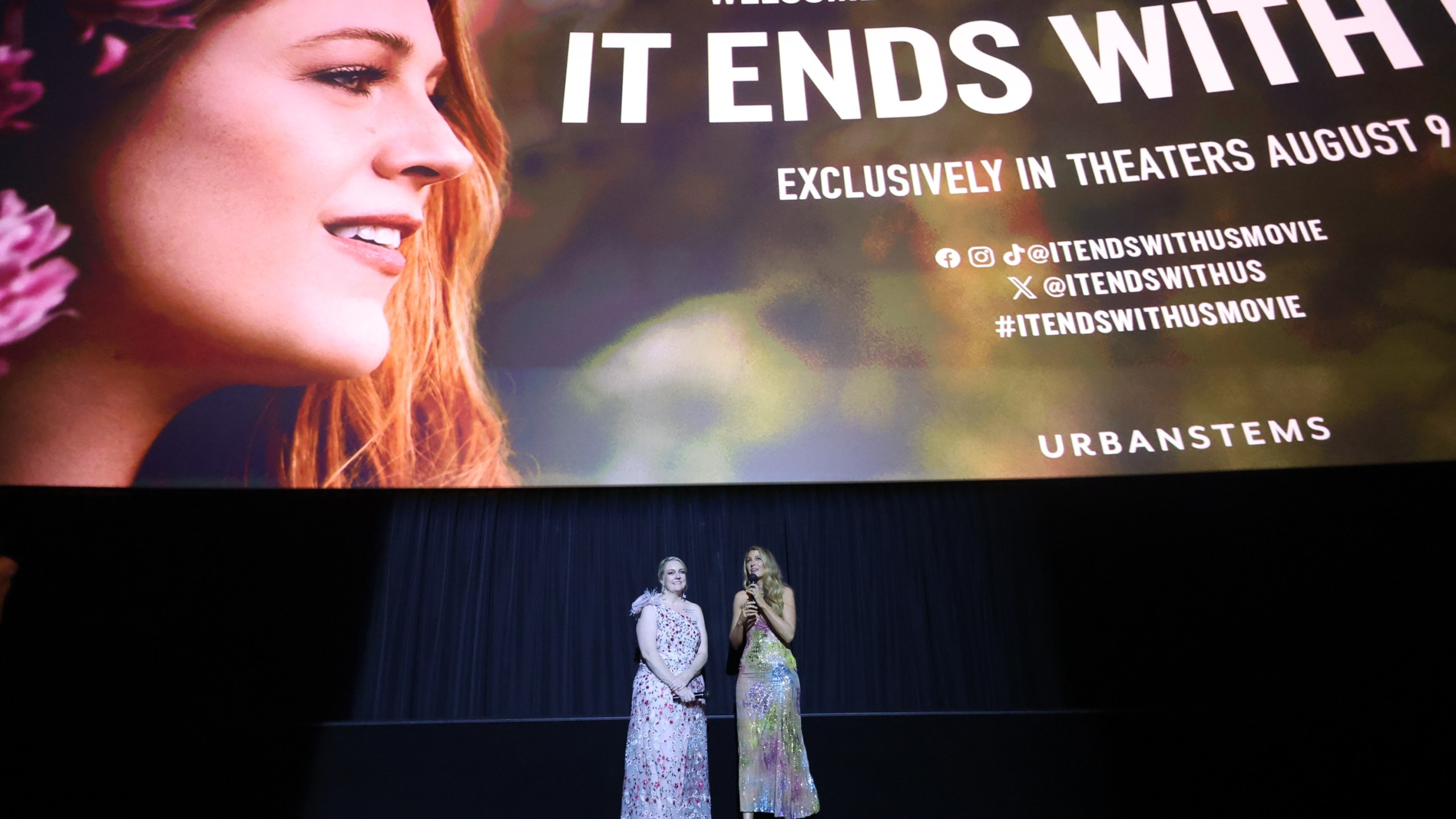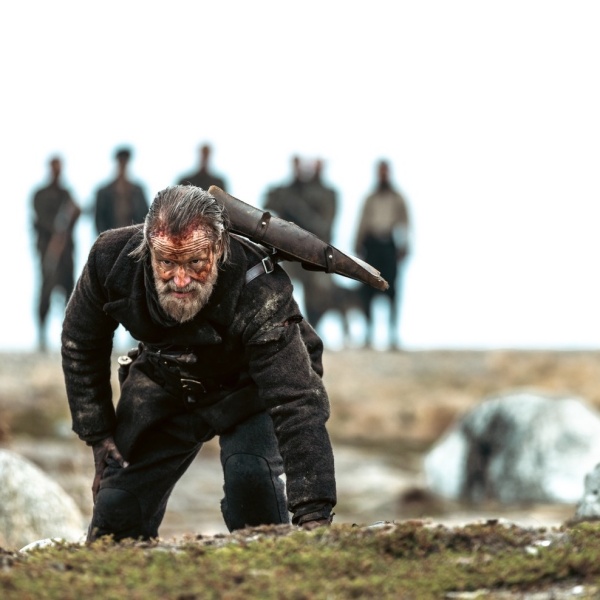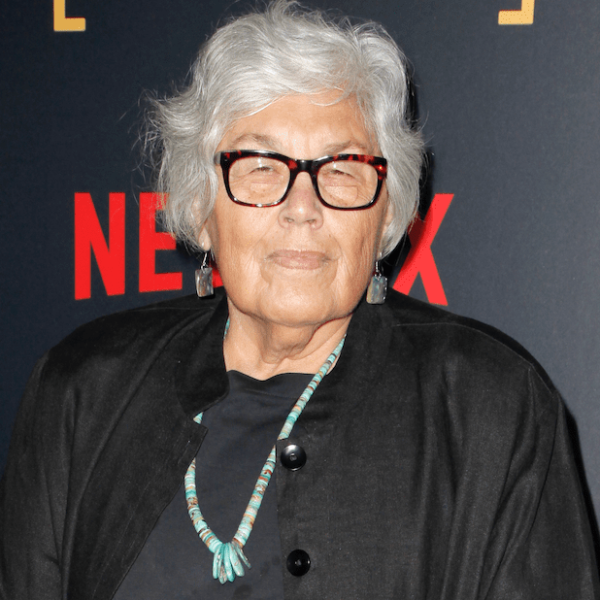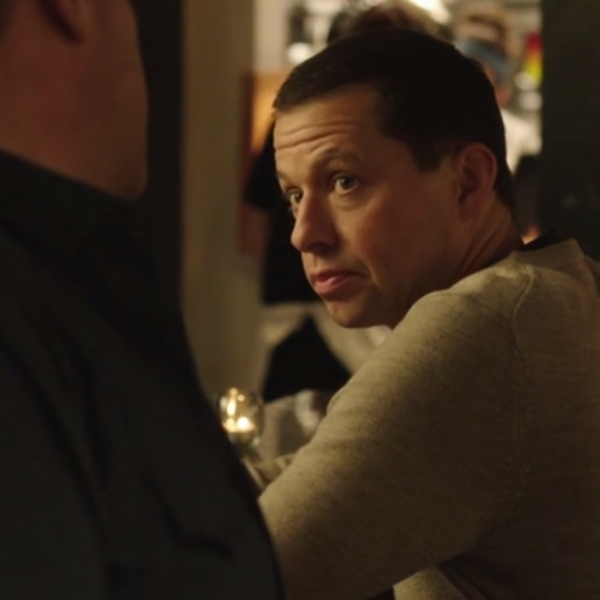On August 14, after Justin Baldoni’s adaptation of Colleen Hoover’s “It Ends with Us” opened to $50 million domestic bucks (and the Blake Lively movie began winning the weekday box office over her husband Ryan Reynolds’ “Deadpool & Wolverine”), Sony Pictures Entertainment Chair-CEO Tony Vinciquerra had words of praise. He cited Lively for her “passion and commitment to advancing the conversation around domestic violence,” adding: “We love working with Blake, and we want to do 12 more movies with her.”
That’s one perspective. For fans of the Colleen Hoover’s best-selling book and its film adaptation, there’s also a growing distaste for the way Lively and Hoover (both producers on the project and two of its most prominent stars on the circuit) have conducted themselves while marketing a film with such upsetting (and for many, personal) subject matter. While the project has been beset by rumors of on-set (and off-) discord between Baldoni, Lively, Hoover, and the rest of the cast, another story is also taking shape.
Mostly: Why the heck are Lively and Hoover giddily promoting this film as if it’s any other blockbuster? And people have noticed, from TikTokers to reporters, many of whom have taken aim at a marketing campaign literally built on hearts and flowers.
In one viral tweet, user “littlemissrv” shared a TikTok reel of an interview with Lively and co-star Brandon Skelnar. The interviewer asked Lively how she prepared herself for the possibility that fans of the film who are also survivors of domestic violence — people “who relate to the topics of this movie on a deeply personal level” — might approach her to talk about their reactions.
It’s a fair question, even a practical one. Movies are personal and, given the massive fan base for the book on which it’s based, it’s reasonable to believe that Lively’s publicity tour could include a number of those potentially sensitive encounters.
Lively’s reaction suggested that wasn’t how she saw it all, dismissing both the question and any idea that she was approachable.
“You mean like asking for my ad-dress, or asking for my phone num-ber,” she said in the singsong tone made familiar as Valley Girl sarcasm. “Or, like, my location share? Or I could just location-share you and we could… I’m a Virgo, so are we talking, like, logistics, or emotionally?”
A similar attitude prevailed in the “It Ends with Us” social push. In the week before the film’s August 9 debut, Lively’s Instagram posts were all about her floral pantsuits, floral sequined minidresses, and floral sundresses (to match her role, as florist “Lily Bloom”), each tagged @itendswithusthemovie.
On August 12, with the film’s boffo opening weekend squarely in the rearview, she finally shared an Instagram story highlighting the impact and prevalence of intimate partner violence. Lively and/or her team provided links to resources, including the National Domestic Violence Hotline. (On Thursday, August 15, Lively’s account shared two more posts from other users praising her work in the film, and one more slide of resources.)
The film’s official Instagram account followed suit, sharing a resource directory for those who have “experienced abuse and [need] help.” The next day, the movie’s account “pinned” a fresh post of resources and added a highlight that included Lively’s IG story. After that highlight came more than a dozen starry snaps of the film’s cast and crew in party mode for its New York premiere.

As “It Ends with Us” moves into its second weekend with the wind at her back, Lively’s account has reverted to beautiful dresses and “Girl Talk,” a video of Lively giggling on a couch with her female co-stars and Hoover. That original IG story with resources is gone (they expire after 24 hours) and the sole viewable highlight reel is devoted to her beverage brand, Betty Buzz, and a three-year obsession “over the exact bubble size.”
There are many lessons to be learned from the success of “It Ends with Us,” none particularly new or exciting. Once again, we learn not to count out female-driven and -backed films, that extremely popular IP storytelling can drive crowds, and that marketing blitzes raise awareness. (Bonus points for the sticky controversy from whatever the still-bubbling drama is between Lively, Baldoni, and apparently other members of the cast and crew.)
However, the real lesson here is everybody — and its most prominent creators in particular — needs to change the way we talk about “It Ends with Us,” a movie that does not center on kicky floral gowns or on gal pals who just need some girl-talk time, but on domestic violence.
This is not a romantic drama. It’s not a fun watch on Friday night. It’s not counter-programming for “Deadpool & Wolverine” and “Twisters.” It’s not the latest box office “Barbenheimer.” It’s not a vehicle for Lively’s fabulous closet and her “unique, headline-making designer fashion.” All of that serves to diminish the most important group of possible audience members: people who have experienced or who are now experiencing domestic violence.
Hoover has always been open and vocal about basing the book on her own parents’ abusive marriage; readers find numerous references within its dedication pages. It should also have been at the forefront of the marketing and promotion around the film.
It’s easy to guess why that’s not the case: What’s more salable, pretty dresses or partner violence? The marketing strategy appears to be based on ignoring or avoiding any suggestion of the topic (which, by the way, is also the “it” in “It Ends with Us”) until the film became a juggernaut. At that point, it was safe to briefly post a few resources for abuse victims.
As for the cognitive dissonance — well, you can’t say we weren’t warned. As noted by Rolling Stone culture writer CT Jones, it mirrors Hoover’s own promotion of her novel. “After her books skyrocketed in popularity during the pandemic, internet critics accused Hoover of profiting off the real-life struggle of women experiencing domestic abuse… Lily’s rationalization of her abusive surroundings, combined with the book and its subsequent sequel’s focus on romance, means the novel often has an incongruous tone.”

Case in point: In 2023, Hoover’s publisher Atria Books announced an “It Ends with Us” coloring book. Fans revolted, Atria canceled publication, and Hoover apologized: “The coloring book was developed with Lily’s strength in mind, but I can absolutely see how this was tone-deaf. I hear you guys and I agree with you. No excuses.”
Only, that’s not exactly true. Hoover’s own website is full of “It Ends with Us” marketing, including an ad for press-on nails inspired by the film and “limited edition” jewelry tie-ins. Nowhere to be found are resources for domestic abuse survivors. Her IG account features highlights for all of her books, plus lots of sunny pictures from the movie’s marketing and publicity tour.
On the film’s IG account, there’s an interview with Hoover chopped into individual videos. Sample question: “What is your favorite time — sunrise or sunset?” That kind of softball would be laughable for the most benign blockbuster, but as with so much related to “It Ends with Us,” it feels so much worse. No excuses.




